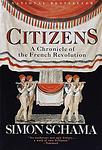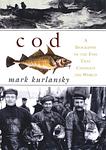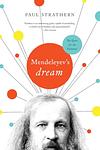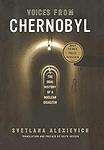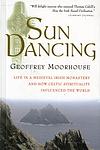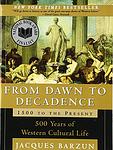The Greatest "Nonfiction, European History" Books Since 1980
Click to learn how this list is calculated.
This list represents a comprehensive and trusted collection of the greatest books. Developed through a specialized algorithm, it brings together 284 'best of' book lists to form a definitive guide to the world's most acclaimed books. For those interested in how these books are chosen, additional details can be found on the rankings page.
Genres
European History is a category of books that focuses on the historical events, people, and cultures of Europe. It covers a wide range of topics, including the ancient civilizations of Greece and Rome, the Middle Ages, the Renaissance, the Enlightenment, and the modern era. This category of books explores the political, social, economic, and cultural developments that have shaped Europe over the centuries, from the rise and fall of empires to the impact of wars and revolutions. It provides readers with a deeper understanding of the rich and complex history of Europe and its influence on the world.
Countries
Date Range
Reading Statistics
Click the button below to see how many of these books you've read!
Download
If you're interested in downloading this list as a CSV file for use in a spreadsheet application, you can easily do so by clicking the button below. Please note that to ensure a manageable file size and faster download, the CSV will include details for only the first 500 books.
Download-
1. Danube by Claudio Magris
This literary work is a rich tapestry that combines travelogue, history, and cultural analysis, following the journey of the river Danube from its sources in the heart of Europe to its delta at the Black Sea. As the narrative meanders through various countries, it delves into the complex history and diversity of the regions along the riverbanks, reflecting on the interplay of different cultures, languages, and peoples. The book is a contemplative exploration of the European spirit, examining the river as both a physical and metaphorical conduit through which ideas and influences have flowed, shaping the continent's past and present.
-
2. The Drowned and the Saved by Primo Levi
This book is a deeply moving exploration of the Holocaust, written by a survivor. It delves into the horrifying experiences at Auschwitz, examining the psychological impact on the prisoners, the brutal behavior of the guards, and the complex moral dilemmas faced by both. The author also discusses the concept of memory and its unreliability, especially in the context of such traumatic events, and analyzes the ways in which the Holocaust has been represented and remembered in society. The book serves as a profound meditation on the human condition under extreme circumstances.
-
3. Alan Turing by Andrew Hodges
This biography provides a comprehensive look at the life and work of a pioneering computer scientist and mathematician who played a crucial role in breaking the Enigma code during World War II. It delves into his groundbreaking contributions to the development of computer science, his tragic prosecution for homosexuality, and his enduring legacy in the field of artificial intelligence and computing. The book not only celebrates his scientific achievements but also examines the social context of his time, shedding light on the challenges he faced and the impact of his work on future generations.
-
4. Postwar by Tony Judt
"Postwar" is a comprehensive analysis of the history of Europe from the end of World War II to the early 21st century. The book examines the major political, cultural, social, and economic changes that have shaped the continent, including the Cold War, the rise and fall of the Soviet Union, the rebuilding of Western Europe, and the challenges of integrating Eastern Europe into the European Union. It also delves into the impact of these events on the daily lives of Europeans, exploring themes of memory, identity, and the struggle to come to terms with the past.
-
5. Sapiens: A Brief History of Humankind by Yuval Noah Harari
This book provides a comprehensive exploration of the history of the human species, tracing back from the earliest forms of Homo Sapiens to the modern day. It delves into evolutionary biology, the development of cultures and societies, and the rise of major ideologies and technologies. The book also discusses the future of the species, posing thought-provoking questions about our roles and responsibilities in a rapidly changing world.
-
6. Citizens by Simon Schama
"Citizens" is a detailed and comprehensive exploration of the French Revolution, offering a fresh perspective on the historical event. The book examines the revolution from its earliest beginnings to its aftermath, delving into the causes, key figures, and the immediate and long-term consequences. It provides a vivid and engaging account, highlighting that the revolution was not just a period of bloodshed and turmoil, but also a time of radical political and social change that shaped the course of modern history.
-
7. Cod: A Biography of the Fish that Changed the World by Mark Kurlansky
This book is a fascinating exploration of the historical, cultural, economic, and ecological impact of the codfish. It traces the role of this fish in shaping economies, sparking wars, and influencing culinary trends across centuries and continents. The book also delves into the devastating effects of overfishing and the current struggle to sustain cod populations. The narrative combines history, science, and gastronomy to present a comprehensive biography of this significant fish species.
-
8. Mendeleyev's Dream by Paul Strathern
This book traces the history of chemistry from the ancient philosophers' wild speculations about the composition of the universe to the creation of the periodic table by Dmitri Mendeleyev. Through a blend of storytelling and science, it explores the development of atomic theory and chemical elements, leading up to Mendeleyev's groundbreaking dream in which he envisioned the periodic table in its modern form. The narrative delves into the lives and discoveries of key figures in the field of chemistry, illustrating how their work contributed to our understanding of the elements that make up the world around us.
-
9. English Society In The Eighteenth Century by Roy Porter
This book offers a comprehensive exploration of the social landscape of 18th-century England, delving into the diverse aspects of daily life and the remarkable transformations that characterized the era. It examines the intricate fabric of English society, from the lives of the aristocracy to the conditions of the poor, and how the age was shaped by factors such as urbanization, commercialization, and the Enlightenment. The narrative captures the contrasts and contradictions of the period, revealing how advancements in education, culture, and industry coexisted with persistent inequality and social strife, painting a vivid picture of a dynamic and evolving society.
-
10. Nations And Nationalism by Ernest Gellner
This book presents a theoretical exploration of the concept of nationalism, the social conditions fostering it, and its role in the modern world. The author argues that nationalism is a product of industrial society, which necessitates a homogenous culture for communication and a centralized education system to sustain the industrial and economic structure. The work critically examines the origins and implications of nationalism, suggesting that it is not an ancient phenomenon but rather a relatively recent one that arises when a society transitions from agrarian to industrial. The author contends that nationalism serves to align the political and national unit, without necessarily corresponding to pre-existing ethnic or cultural identities, and is a political principle that holds that the political and the national unit should be congruent.
-
11. The Unwomanly Face Of War by Svetlana Alexievich
"The Unwomanly Face Of War" is a powerful and poignant collection of interviews with Soviet women who fought in World War II. Through their testimonies, the author sheds light on the often overlooked and untold stories of these brave women who served as snipers, pilots, nurses, and soldiers on the front lines. The book explores their experiences, sacrifices, and the lasting impact of war on their lives, providing a unique and intimate perspective on the realities of war from a female point of view.
-
12. Staying Power: The History of Black People in Britain by Peter Fryer
"Staying Power: The History of Black People in Britain" is a comprehensive account of the African diaspora in Britain from Roman times to the present day. The book explores the various contributions of Black people to the British society, culture, and economy, challenging the traditional narrative that Black presence in Britain began with the Windrush generation. The author delves into the struggles, achievements, and resilience of Black people in Britain, offering a nuanced and detailed historical perspective.
-
13. Die Totalitäre Erfahrung by Karl Dietrich Bracher
The book in question provides a comprehensive analysis of totalitarianism, exploring the political and social conditions that give rise to such regimes. It delves into the characteristics of totalitarian states, examining how they gain and maintain power through the manipulation of ideology, the use of terror, and the control of mass communication. The work also reflects on the historical instances of totalitarian governments in the 20th century, offering insights into the dangers they pose to individual freedoms and democratic structures. Through its examination of the dynamics of total control, the book serves as a warning about the fragility of democratic institutions and the constant need to defend them against authoritarian threats.
-
14. The Rise And Fall Of The Great Powers by Paul Kennedy
The book in question offers a comprehensive analysis of the economic and military factors that have shaped the relative power of nations from the 16th century to the late 20th century. It argues that the rise and fall of great powers are closely linked to their ability to manage economic resources and maintain military strength. The author examines the patterns of history to show how the overextension of an empire's resources often leads to decline, and suggests that managing the balance between wealth and power is crucial for the longevity of a great power. The book also provides insights into the potential future of global power dynamics by considering the implications of these historical patterns for contemporary superpowers.
-
15. Italian Days by Barbara Grizzutti Harrison
"Italian Days" is a richly woven travel memoir that takes the reader on an evocative journey through Italy's cities, culture, and history. The author's exploration is both external and internal, as she traverses the picturesque landscapes and delves into the art, architecture, and culinary delights that define the Italian experience. With a keen eye for detail and a deep appreciation for the country's heritage, the narrative is as much about the personal transformation that travel can inspire as it is about the vibrant tapestry of Italian life. The memoir is a celebration of the senses, inviting readers to lose themselves in the beauty and complexity of Italy's timeless allure.
-
16. Voices from Chernobyl by Svetlana Alexievich
This book is a haunting collection of personal accounts about the nuclear disaster at Chernobyl in 1986. The author has meticulously gathered and woven together interviews from survivors, including former workers of the plant, residents, and soldiers. Each narrative reveals the physical and psychological impact of the disaster on individual lives, creating a deeply moving oral history of an event that has had profound consequences on the people of Belarus and Ukraine.
-
17. Imperium by Ryszard Kapuscinski
"Imperium" is a gripping account of the author's travels through the Soviet Union during the final years of its existence. With a keen eye for detail and a deep understanding of the complexities of power, the author delves into the lives of ordinary people and high-ranking officials alike, revealing the oppressive nature of the Soviet regime and the profound impact it had on the lives of its citizens. Through vivid descriptions and insightful observations, the book offers a compelling narrative that sheds light on the inner workings of a crumbling empire.
-
18. The Age Of Extremes by Eric Hobsbawm
"The Age of Extremes" is a historical analysis that explores the tumultuous period of the 20th century, spanning from 1914 to 1991. This work delves into the profound transformations and conflicts that defined the era, including the two World Wars, the Cold War, the rise of fascism and communism, and the eventual collapse of the Soviet Union. The book examines the impact of economic crises, technological advancements, and social changes on global societies, offering insights into how these extreme conditions shaped the modern world and its political landscapes. The narrative combines a detailed account of historical events with a critical evaluation of their economic and cultural implications, providing a comprehensive overview of a century marked by both unprecedented progress and devastating turmoil.
-
19. Sun Dancing by Geoffrey Moorhouse
"Sun Dancing" presents a vivid tapestry of medieval Irish monasticism, combining historical facts with imaginative storytelling. The book delves into the austere and spiritually intense lives of monks on Skellig Michael, a remote island off the Irish coast, during the early centuries of Christianity in Ireland. Through a blend of narrative and analysis, the text explores the harsh realities of monastic life, the cultural and religious contributions of these communities, and the broader context of Irish and European history during this period. The author weaves together the daily routines, spiritual practices, and legendary tales of these monks, providing a window into a world where faith and endurance converge amidst the isolation of the Atlantic Ocean.
-
20. Journal, 1935 44 by Mihail Sebastian
"Journal, 1935-44" is a captivating collection of diary entries written by an insightful and introspective individual named Mihail Sebastian. Spanning almost a decade, the journal provides a unique glimpse into the author's personal thoughts, experiences, and observations during a tumultuous period in history. Through his poignant reflections, Sebastian explores themes of identity, love, politics, and the human condition, offering readers a profound and thought-provoking journey through his inner world.
-
21. Say Nothing by Patrick Radden Keefe
This book is a gripping exploration of the Troubles in Northern Ireland, focusing on the disappearance of Jean McConville, a mother of ten who was abducted by the Irish Republican Army (IRA) in 1972. The narrative weaves together the stories of several key figures in the IRA, including Dolours Price, an IRA member who became disillusioned with the organization, and Brendan Hughes, a former IRA commander. The book delves deep into the political and personal complexities of the conflict, revealing the long-lasting trauma and moral ambiguities that continue to haunt those involved.
-
22. Lenin's Tomb: The Last Days of the Soviet Empire by David Remnick
This book provides an in-depth account of the final days of the Soviet Union, focusing on the period from 1989 to 1991. It explores the political, economic, and social factors that led to the collapse of the Soviet empire, including the role of key figures such as Mikhail Gorbachev, Boris Yeltsin, and others. The author, a journalist who lived in Moscow during this time, combines historical analysis with personal observations and interviews, offering a unique perspective on this significant period in world history.
-
23. Journey To Portugal by José Saramago
In this travelogue, the narrative unfolds as a journey through Portugal, guided by a keenly observant and contemplative traveler who delves into the heart of the country. As he traverses from north to south, the traveler reflects on the rich tapestry of landscapes, historical sites, and the everyday lives of the Portuguese people he encounters. The book is as much an exploration of the country's culture, history, and identity as it is a personal quest for understanding and connection, offering readers an intimate and lyrical portrayal of Portugal's soul.
-
24. London: The Biography by Peter Ackroyd
This book is a comprehensive exploration of the city of London, from its ancient origins to the modern era. The author delves into the city's rich history, culture, and unique character, examining its evolution through various lenses such as crime, religion, commerce, education, and entertainment. The narrative is brought to life with fascinating anecdotes, vivid descriptions, and a wealth of historical detail, providing an immersive and engaging portrait of one of the world's most iconic cities.
-
25. From Dawn To Decadence : 1500 To The Present by Jacques Barzun
This book offers a sweeping overview of Western cultural life from the Renaissance to the early 21st century. It delves into the pivotal events, ideas, and personalities that have shaped the modern world, exploring how cultural movements and the evolution of thought have influenced society's development. The narrative weaves through various disciplines, including art, music, politics, and science, to provide a comprehensive understanding of the forces that have led to both the achievements and challenges of Western civilization. Through a rich tapestry of historical analysis, the work invites readers to reflect on the complexity and dynamism of the human experience over the last five centuries.
Reading Statistics
Click the button below to see how many of these books you've read!
Download
If you're interested in downloading this list as a CSV file for use in a spreadsheet application, you can easily do so by clicking the button below. Please note that to ensure a manageable file size and faster download, the CSV will include details for only the first 500 books.
Download




